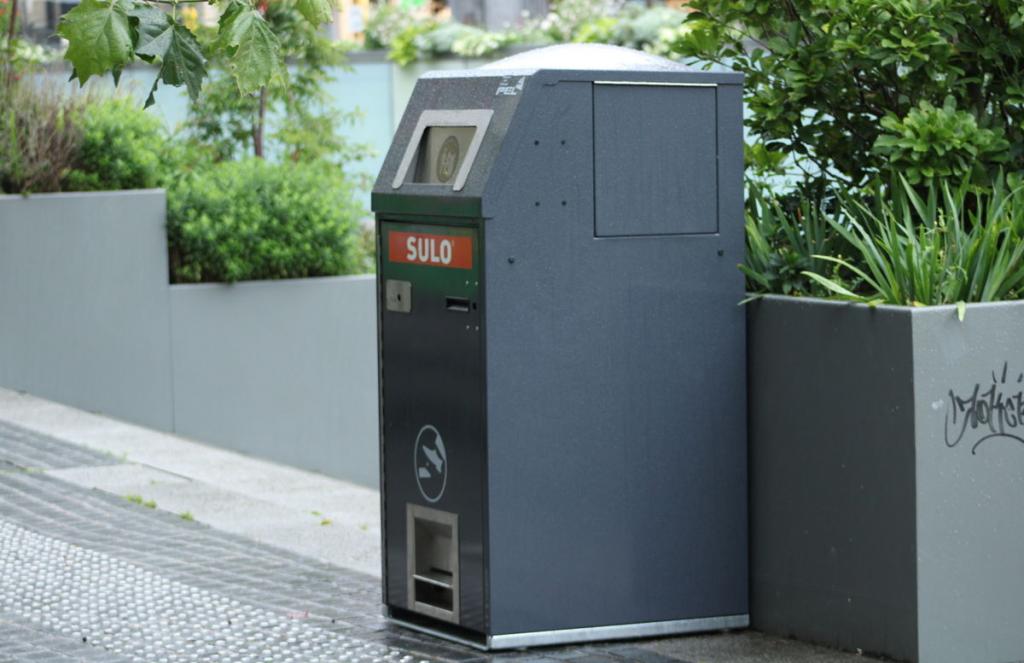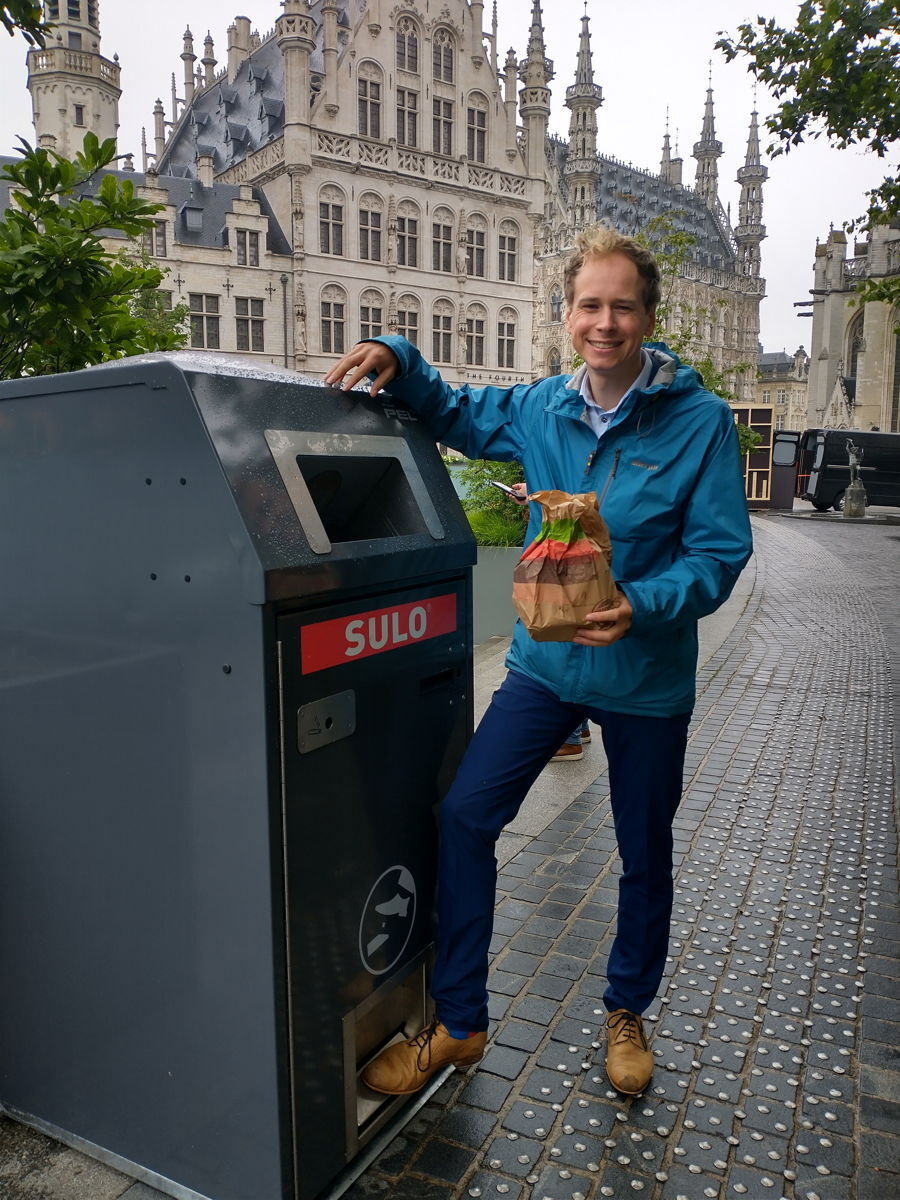Thessaloniki gets ready for its metro launch in November
The underground rapid transit lines have been under construction for almost two decades due to various project delays
 TheMayor.EU logo
TheMayor.EU logo 
The trash can prototype will have a smart sensor and trash compacting mechanism , Source: City of Leuven
Despite being emptied several times a day, some bins attract excessive amounts of waste
On 14 July the Belgian city of Leuven announced it will be implementing experimental smart garbage cans, that also have compacting functions. Tomas Van Oppens, Alderman of City Cleaning, praised the sustainable project.
After social distancing guidelines and pandemic restrictions have started to disappear, the city of Leuven faces a new problem: people spend more time in public spaces and trash bins are overflowing. The city announced it will be updating a portion of its trash bins with solar-powered, smart and trash compacting models in an experimental attempt to better manage the situation.
Every day, 25 street sweepers and ten other employees set out to keep the streets, the bins and squares clean. However, despite being emptied several times a day, some bins attract an inordinate amount of garbage, leading them to overflow creating a visual eyesore and hygienic problems.
 Tomas Van Oppens next to one of the experimental cans, Source: City of Leuven
Tomas Van Oppens next to one of the experimental cans, Source: City of Leuven
Conventional trash collection seems to be failing and this is the time for ‘smart’ solutions. Over the next six months, Leuven wants to experiment with the deployment of smart trash bins, as alderman for City Cleaning Tomas Van Oppens explained in a press release: “We will use new technologies and will collect a lot of data so that we can make informed choices afterwards.”
In the coming days, the city will place the prototype compacting trash bins in various crowded places in the centre. They will be able to compress the waste, holding up to 30 times more than their non-smart counterparts.
At the same time, the cans will be equipped with a solar-powered sensor, monitoring their capacity. Essentially, city employees will be able to keep track of the level in the cans from their smartphone or computer and empty them only when they need to.
"The garbage cans also allow us to collect a lot of data. For example, we will know which garbage cans are used a lot or a little and we can move underused bins, if necessary," explained Van Oppens.
The alderman highlighted that if the city decided to use the garbage cans on a large scale in the long term, it could also optimise the collection routes. This would result in fewer collection trips, a decrease in collection costs and CO2 emissions.
If you want to keep up with how European cities and regions are changing, follow us on Facebook, Twitter and Instagram.

The underground rapid transit lines have been under construction for almost two decades due to various project delays

Now you can get your wine in Talence by paying directly in Bitcoin

That’s because the state has to spend money on updating the railway infrastructure rather than subsidizing the cost of the popular pass

Rethinking renewable energy sources for the urban landscape

The examples, compiled by Beyond Fossil Fuels, can inform and inspire communities and entrepreneurs that still feel trepidation at the prospect of energy transition

Now you can get your wine in Talence by paying directly in Bitcoin

The 10th European Conference on Sustainable Cities and Towns (ESCT) sets the stage for stronger cooperation between the EU, national and local level to fast track Europe's transition to climate neutrality.

At least, that’s the promise made by the mayor of Paris, Anne Hidalgo

The underground rapid transit lines have been under construction for almost two decades due to various project delays

At least, that’s the promise made by the mayor of Paris, Anne Hidalgo

Hostal de Pinós is located in the geographical centre of the autonomous region

Despite its church-y name, the district has long been known as the hangout spot for the artsy crowds

Urban dwellers across the EU are having a say in making their surroundings friendlier to people and the environment.

Forests in the EU can help green the European construction industry and bolster a continent-wide push for architectural improvements.

Apply by 10 November and do your part for the transformation of European public spaces

An interview with the Mayor of a Polish city that seeks to reinvent itself

An interview with the newly elected ICLEI President and Mayor of Malmö

A conversation with the Mayor of Lisbon about the spirit and dimensions of innovation present in the Portuguese capital














